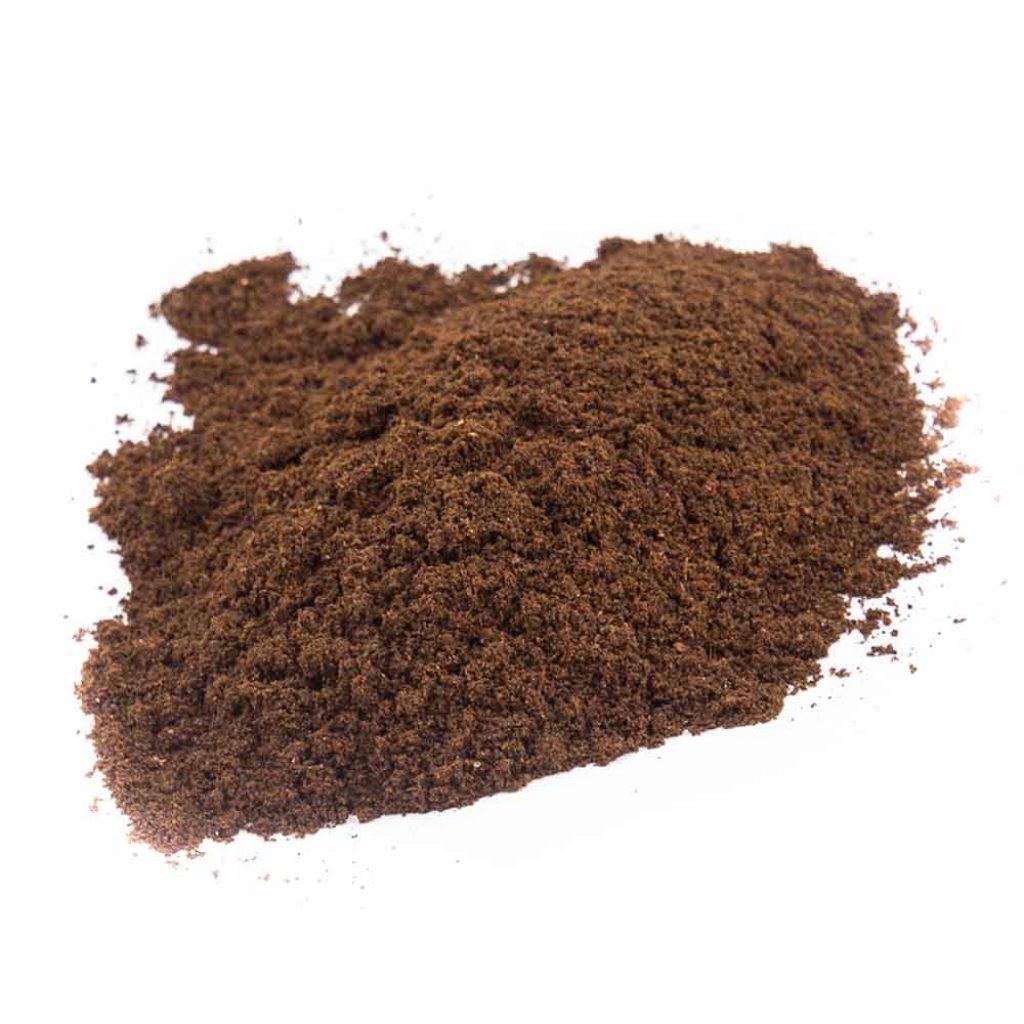Clove powder, derived from the dried buds of the clove tree, is more than just a holiday spice. This aromatic powerhouse boasts a rich history and a surprising array of potential benefits, from culinary applications to traditional medicine. Prepare to explore the intriguing world of clove powder and discover its versatility.
Exploring the Potential Health Benefits of Clove Powder
Clove powder is a rich source of vitamins, minerals, and antioxidants, particularly eugenol, which may play a role in protecting cells from damage. While research is ongoing and more studies are needed to solidify these findings, some evidence suggests that clove powder might offer various health benefits.
Liver Health
Some studies indicate that clove powder could support liver health, potentially by reducing inflammation and oxidative stress. However, more research is needed to fully understand these effects. Does creatine make you poop? While seemingly unrelated, exploring the impact of various substances on liver function can provide valuable context.
Blood Sugar Management
Early research hints that clove powder might help regulate blood sugar levels. Registered Dietician Amy Gorin points out that cloves are a good source of manganese, a mineral that’s important for blood sugar control. However, further investigation is needed to understand the underlying mechanisms and confirm these initial findings.
Bone Health
While the evidence is preliminary, some studies suggest that clove powder could contribute to bone health. This exciting area of research warrants further exploration to understand the potential benefits fully.
Digestive Support
Traditional medicine has long used clove for digestive issues, and some studies suggest clove powder might help soothe an upset stomach. This traditional use aligns with clove powder being a good source of fiber, as noted by Amy Gorin, RDN, who states, “For a spice, cloves have an impressive amount of fiber.” Fiber is crucial for maintaining a healthy digestive system.
Antimicrobial and Anti-inflammatory Properties
Clove powder’s eugenol may have antibacterial and anti-inflammatory properties. Scientists are still exploring the full extent of these effects and their potential applications.
Cancer Prevention (Preliminary Research)
Some early-stage research is investigating the potential of clove powder in cancer prevention. However, it’s crucial to emphasize that much more work is necessary in this area, and clove powder is not currently a proven preventative or treatment for cancer.
Important Note: These potential benefits are not a substitute for medical advice. Consult a healthcare professional before using clove powder for any health concern, particularly if pregnant, breastfeeding, or managing existing health conditions.
Clove Powder in the Culinary World
Clove powder’s warm, slightly sweet, and intensely aromatic flavor makes it a versatile ingredient in various cuisines.
Savory Dishes
Clove powder adds depth and complexity to savory dishes like stews, pot roasts, and marinades. It pairs well with cinnamon, nutmeg, and allspice, particularly in Indian, Middle Eastern, and North African cuisine.
Baking
Clove powder is a staple in baked goods, adding its signature warmth to gingerbread, spice cakes, pies, and fruit breads.
Beverages
Infuse warm beverages like apple cider, chai, and even coffee with clove powder for a unique twist.
Choosing, Storing, and Using Clove Powder
Selection
Look for high-quality, preferably organic clove powder and check the expiration date for freshness. Grinding whole cloves yourself offers maximum flavor and aroma.
Storage
Store clove powder in an airtight container in a cool, dark, and dry place, away from heat, light, and moisture.
Usage
Start with small amounts, as clove powder is potent. Add directly to dishes during cooking or steep in liquids for infusions.
Clove Powder in Traditional Medicine
Traditional medicine systems have utilized clove powder for its therapeutic properties, including:
- Digestive Aid: Relieving gas and bloating.
- Pain Relief: Easing toothaches and other types of pain.
- Immune Support: Potentially boosting the immune system (more research is needed).
- Energy Enhancer: Increasing vitality and energy levels.
Making Fresh Clove Powder
- Gather: Whole cloves, spice grinder or mortar and pestle.
- Grind: Pulse cloves in a spice grinder until finely powdered or grind with a mortar and pestle.
- Store: Transfer to an airtight container and store in a cool, dark, and dry place.
Using Clove Powder Safely
While generally safe in moderation, excessive clove powder consumption could have side effects. Consult your doctor, especially if pregnant, breastfeeding, or with underlying health conditions. Have you ever wondered what makes clear slime so clear? The connection might seem unusual, but exploring different materials and their properties can broaden our understanding of how substances interact.
What is Clove Powder Used For?
Clove powder, ground from dried clove buds, is a versatile spice with a rich history and numerous applications in both cooking and traditional medicine.
Culinary Applications
Clove powder is a culinary chameleon, adapting to sweet and savory dishes:
- Baking: Adds cozy warmth to cakes, cookies, and pies, particularly during the holidays, often combined with cinnamon, nutmeg, and allspice.
- Savory Dishes: A key ingredient in spice blends like garam masala and curry powder, adding depth to stews, braises, and sauces. Enhances rubs and marinades for meats like lamb and beef.
- Beverages: Elevates hot apple cider, mulled wine, and chai with its distinctive warmth.
Potential Health Benefits
Clove powder’s rich composition, particularly eugenol, is believed to offer several potential health benefits:
- Antioxidant: Rich in antioxidants, which protect cells from free radical damage.
- Anti-inflammatory: Eugenol may possess anti-inflammatory properties, potentially offering relief from related discomfort. However, more research is needed to understand its effects fully.
- Blood Sugar Management: Early research suggests a possible role in regulating blood sugar levels.
- Digestive Health: A good source of fiber, promoting regularity and gut health.
| Potential Benefit | Compound/Nutrient | Notes |
|---|---|---|
| Antioxidant Protection | Eugenol | Protects cells |
| Anti-inflammatory Effects | Eugenol | May manage inflammation |
| Blood Sugar Regulation | Manganese, other compounds | More research needed |
| Digestive Health | Fiber | Promotes regularity |
Sourcing Clove Powder
- Origin: Dried flower buds of the Syzygium aromaticum tree, mainly from Indonesia.
- Processing: Harvested buds are dried and ground into a fine powder.
- Forms: Whole cloves, ground powder, and clove oil. Whole cloves can be ground for fresh powder.
Regional Variations and Comparisons
Clove usage varies regionally. For example, Indian cuisine often pairs clove with cardamom and cinnamon, while Middle Eastern cuisine uses it in savory meat dishes. Compared to other warm spices like cinnamon and nutmeg, clove has a more pungent, slightly sweet flavor.
Sustainability and Precautions
The sustainability of clove production is an important consideration. Look for fair trade options to support ethical sourcing. While generally safe, excessive clove consumption can have adverse effects. Be mindful of potential drug interactions and allergies.
The Bottom Line
While ongoing research continues to explore clove powder’s potential, it’s a versatile spice with possible health benefits. Consult a healthcare professional before using it for specific health conditions. Incorporating clove powder into your diet can be a flavorful way to enhance your culinary creations and potentially your well-being.
How Much Clove Powder Should I Take Daily?
Determining the right amount of clove powder to consume daily involves personalized considerations, as there is no universally recommended dosage. Factors such as individual health, medications, and usage goals influence the appropriate amount.
Consulting a Healthcare Professional
Consulting a doctor or registered dietitian is crucial for personalized recommendations. They can assess your individual health status and needs to provide tailored advice.
Dosage Considerations
While research is ongoing, a cautious approach is recommended. Starting with a small amount (e.g., ¼ – ½ teaspoon) and gradually increasing, if needed, while monitoring for any reactions, is advisable.
| Use Case | Amount | Considerations |
|---|---|---|
| Cooking/Baking | Pinch to 1 teaspoon | Adjust to taste |
| Tea Infusion | ⅛ – ¼ teaspoon | Steep for 5-10 minutes |
| Supplements | Follow product directions | Consult a healthcare professional |
Different Forms of Clove
The form of clove affects dosage. Powder is more concentrated than whole cloves. Clove oil, with its high eugenol concentration, requires even smaller amounts.
Ongoing Research
Current research suggests potential health benefits, but continued studies are essential to confirm these findings and understand long-term effects.
Safe Exploration
While a precise daily intake recommendation isn’t available, informed exploration is encouraged. Listen to your body, consult your healthcare provider, and stay informed about evolving nutritional knowledge.
What are the Benefits of Cloves?
Cloves, the dried flower buds of the Syzygium aromaticum tree, offer a range of potential health benefits and culinary uses.
Nutritional Powerhouse
Cloves are rich in vitamins (A, C, E, K), minerals like manganese and potassium, and antioxidants, contributing to overall health.
Antioxidant Properties
Cloves are packed with antioxidants, including phenolic acids and flavonoids, which protect cells from free radical damage.
Anti-inflammatory Effects
Cloves contain compounds with potential anti-inflammatory properties, which may help soothe inflammation.
Antimicrobial Action
Cloves have shown antimicrobial properties, potentially combating harmful bacteria and other microorganisms.
Liver Support
Early studies suggest eugenol may support liver health and potentially reduce signs of liver disease.
Blood Sugar Regulation
Some research suggests cloves may play a role in regulating blood sugar levels, although further studies are needed.
Oral Health
Traditionally used for toothaches due to pain-relieving and antimicrobial properties.
Digestive Health
The fiber in cloves promotes healthy digestion and regularity.
Other Uses
- Culinary: Adds warmth and aroma to dishes.
- Aromatherapy: Clove oil has calming and uplifting effects.
| Nutrient | Amount (per 1 tbsp ground cloves) |
|---|---|
| Calories | 18 |
| Carbohydrates | 4 grams |
| Fiber | 2.2 grams |
| Sugar | 0.15 grams |
| Protein | 0.4 grams |
| Fat | 1.3 grams |
Cautions and Further Exploration
While cloves offer potential benefits, ongoing research is essential. Consult a healthcare professional before using cloves for specific health concerns. The world of cloves and their potential benefits is constantly evolving. Stay curious and explore the power of this versatile spice.
- Choosing the Best Meal Prep Lunch Box for Daily Use - February 17, 2026
- Sectioned Food Storage Containers Are Your New Meal Prep Lifesaver - February 16, 2026
- Divided Meal Prep Containers Make Organizing Healthy Meals Easy - February 15, 2026










